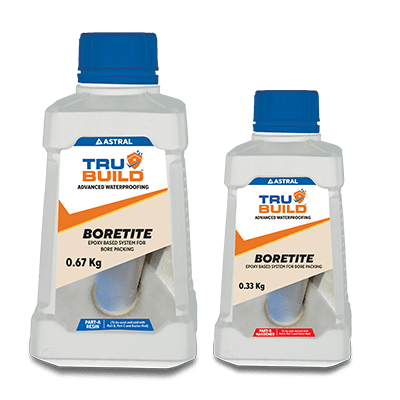Epoxy Grout vs. Cement Grout: What is the Difference?
Feb 16, 2025
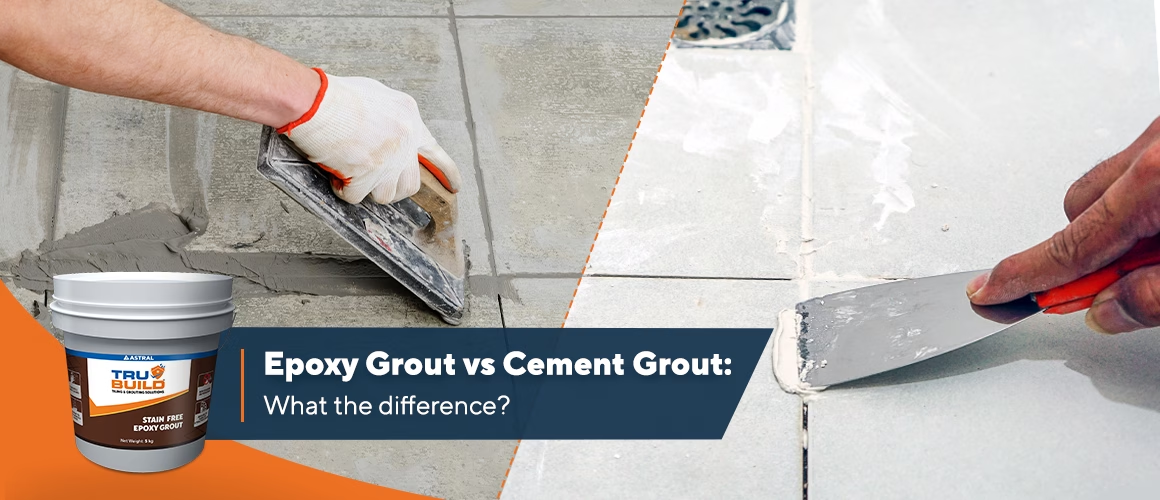
Ever installed stunning tiles, only to watch the grout lines stain, crack or crumble after a few months? It is a frustrating experience. This is why, when it comes to tile installation, the choice of tile grout is an important decision. It holds the tiles in place and impacts the longevity, appearance and ease of maintenance of your tiled surfaces.
Cement grout and epoxy grout are two of the most popular choices, and both are distinct in the benefits they offer. With all the options and variants available, how do you know which one to pick? Choosing the right tile grout will ensure that your tiles stay secure, look great and stand the test of time. The wrong grout choice can turn your beautiful tile work into an expensive repair job down the line. Before you pick one over the other, you must understand the key differences between epoxy grout and cement grout.
What is Cement Grout?
Cement grout is the ideal tile grout for filling cracks or gaps in concrete. A straightforward yet effective mix of cement, water and additives, it is widely used in repair and construction projects. Whether you have to fix tile floors, restore damaged walls or tidy up outdoor spaces, cement grout provides a reliable and durable option. It is easy to apply and once set, it forms a strong bond that ensures long-lasting performance. Cement grout helps to maintain structural integrity, supporting the durability of your surfaces by offering a neat, polished finish.
What is Epoxy Grout?
Epoxy grout is a high-performance grouting material made from synthetic resin and a hardener to withstand demanding conditions. Known for its exceptional durability, it resists stains, chemicals and moisture, which makes it an ideal choice for areas exposed to heavy use and harsh elements.
Think of epoxy grout as a protective barrier for your tiles or concrete. It prevents damage from spills, wear and discolouration. Unlike traditional cement grout, it does not absorb water or crack over time and ensures a long-lasting, polished finish. Available in a variety of colours, this type of tile grout allows for seamless design integration. While it comes at a higher cost, its durability and low maintenance make it an excellent choice for spaces where strength and aesthetics matter.
What is the Difference Between Epoxy Grout and Cement Grout?
This epoxy grout vs cement grout comparison summarises the key differences between the two sealants.
| Feature | Epoxy Grout | Cement Grout |
| Composition | Made of synthetic resin and hardener | Made of cement, sand and water |
| Durability | Highly durable, resistant to stains, moisture and chemicals | Less durable, can crack or stain over time |
| Water Resistance | Waterproof, ideal for high-moisture areas | Absorbs moisture, so it is not ideal for wet areas |
| Colour Retention | Retains colour and does not fade with cleaning | Colour can fade or discolor over time |
| Application | Requires more precision and expertise for mixing and application | Easier to apply, no special expertise required |
| Maintenance | Low-maintenance, resistant to stains and wear | Requires regular maintenance and cleaning |
| Cost | Higher cost due to its properties and durability | More affordable, commonly used for basic applications |
What are the Main Areas to Use: Cement Grouting vs. Epoxy Grouting
When it comes to epoxy vs. cement grouting, both options have their unique benefits and drawbacks. Let’s see which one works best for different applications:
- Cement grout: This is a tried-and-true material which has been used in construction for decades. While it creates a solid base for your tiles, it has some downsides. Over time, cement grout can crack, chip and stain. This is why it needs regular maintenance to keep it looking fresh.
- Epoxy grout: This is a more advanced, high-performance alternative. It offers superior durability and resistance to chemicals and environmental damage. It offers extended protection and a longer lifespan for tiled surfaces. Plus, epoxy grout is stain-resistant, retains its colour and is perfect for spaces prone to spills and stains.
Epoxy grout tends to be more expensive than cement grout. While it offers top-notch performance and durability, it might not always be the most budget-friendly choice. Ultimately, the decision about epoxy grout vs. cement grout comes down to your specific needs and priorities. The choice is yours.
How to Choose the Right Tile Grout?
Now that we have understood the difference between epoxy grout and cement grout, know what you should keep in mind when choosing a tile grout for your home. It is important to consider factors like the type of surface, grout width and the environment. Make sure the tile grout suits your tile material and choose a colour and finish that complements the tiles.
One of the top choices among professionals is Astral Trubuild Stain-Free Epoxy Grout. It is specially formulated for ceramic, vitrified tiles and natural stones, which makes it ideal for stain-prone areas. This tile grout provides a durable, chemical-resistant and stain-free joint that can withstand wear and tear. Suitable for interior and exterior applications, Astral Trubuild Stain-Free Epoxy Grout offers non-shrinking, water-resistant and UV-resistant results. Available in various colours and ideal for tile grout widths up to 5 mm, it ensures a long-lasting finish.
For a polymeric cement-based option, Trubuild Tile Grout is a reliable choice, offering easy application and durable, waterproof joints for a wide range of tile types. Explore the different types of tile grouts offered by Astral Trubuild.


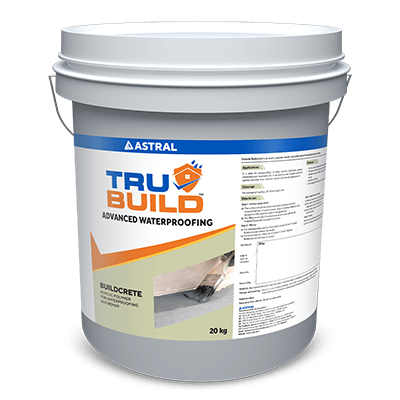
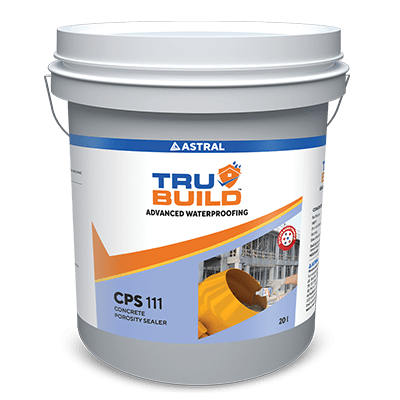
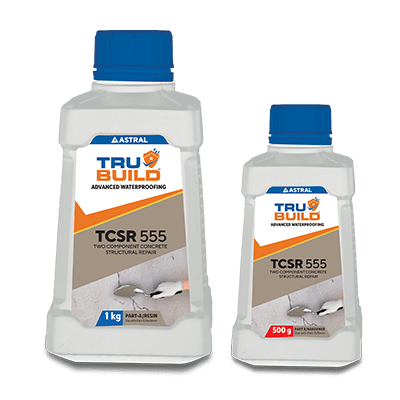


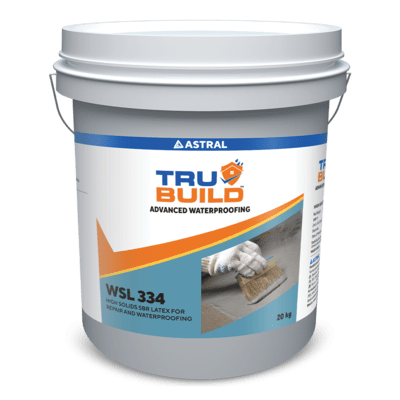
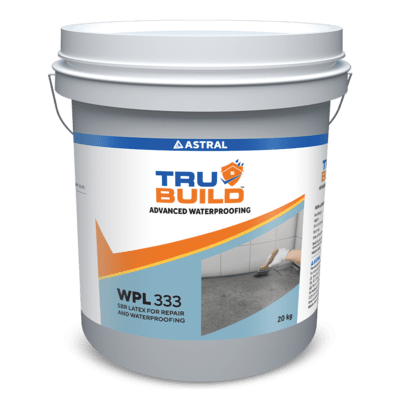
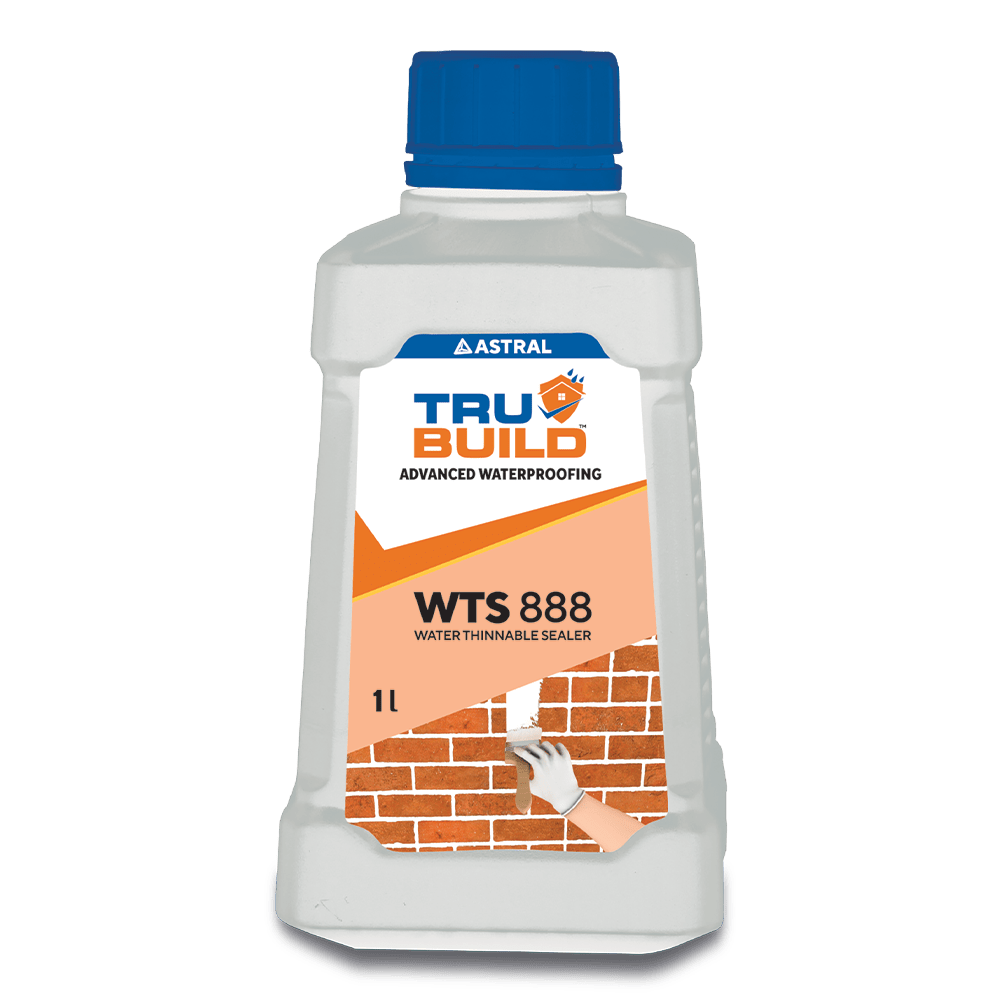



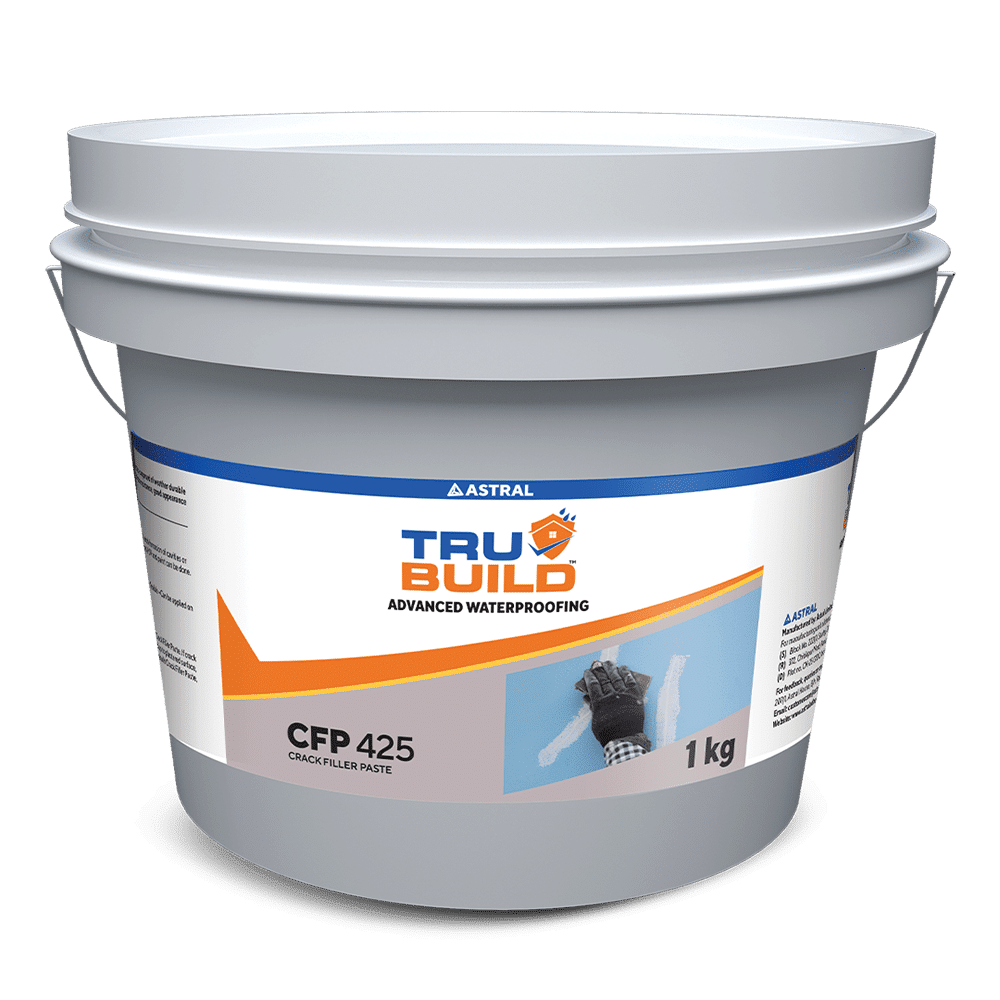




 Professional Sealants
Professional Sealants
 Roof Waterproofing
Roof Waterproofing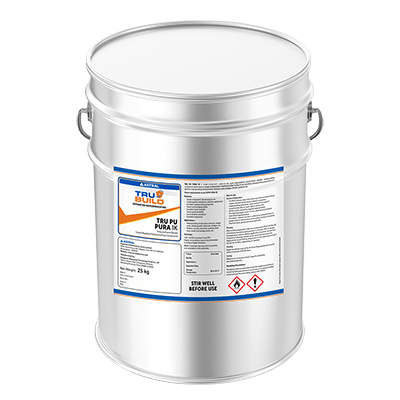
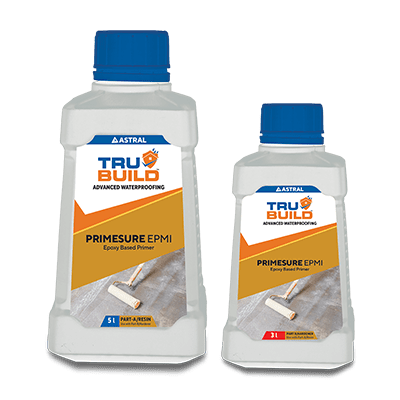





 Substructure Waterproofing
Substructure Waterproofing Tiling and Grouting
Tiling and Grouting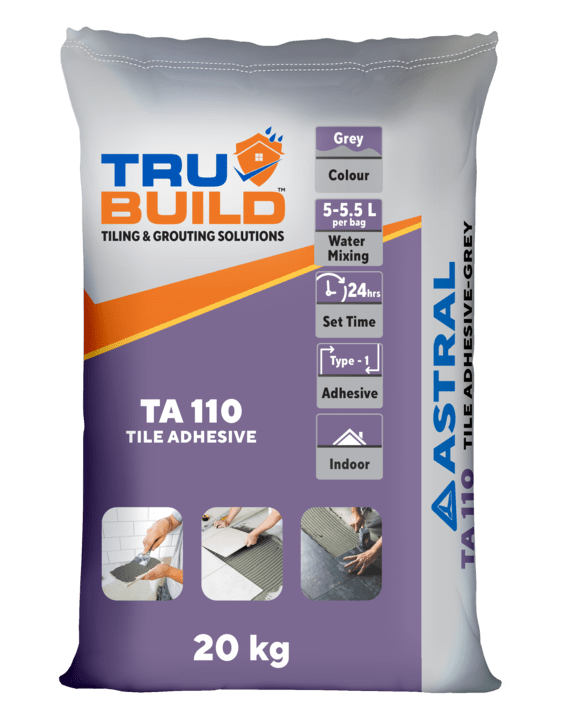
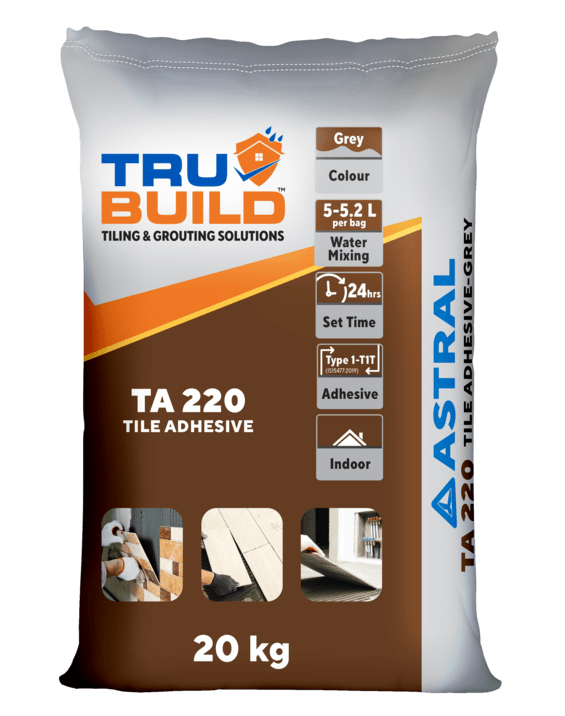
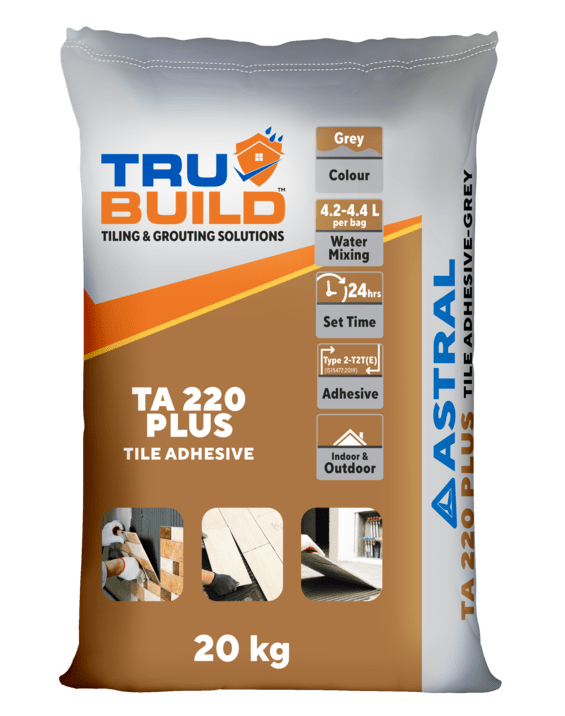
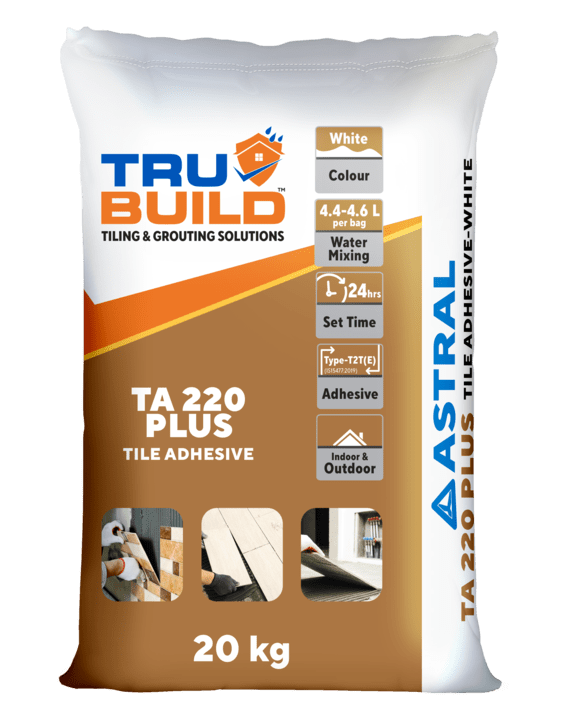
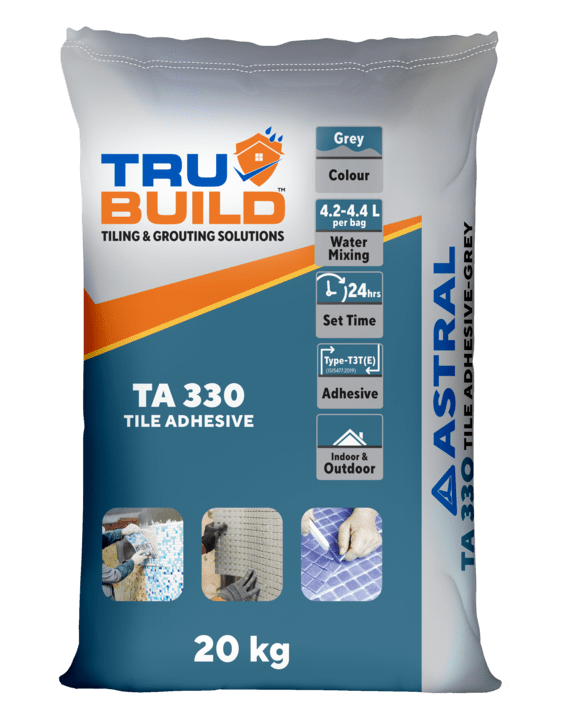
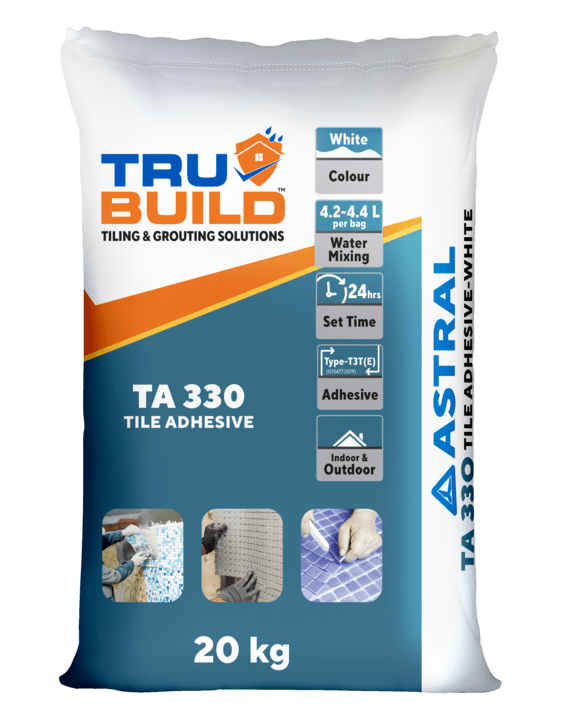
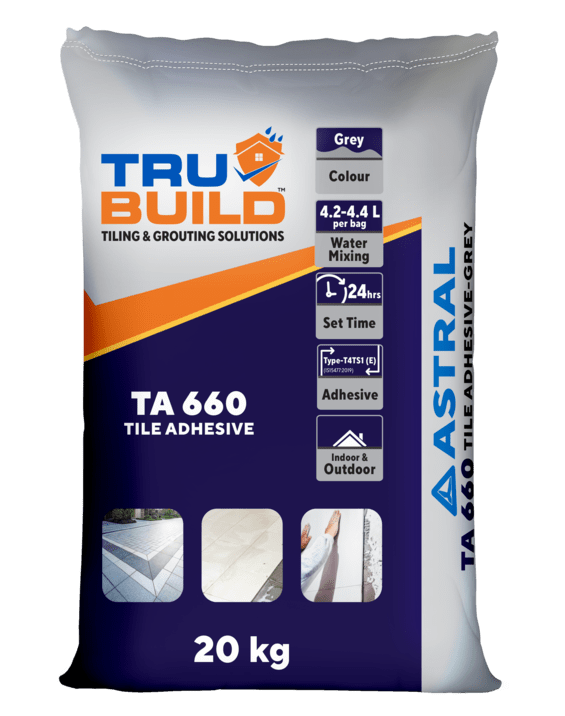
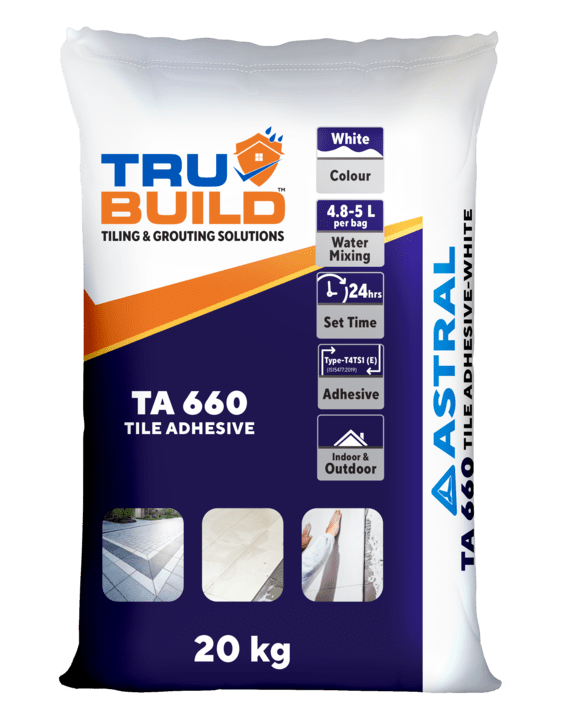


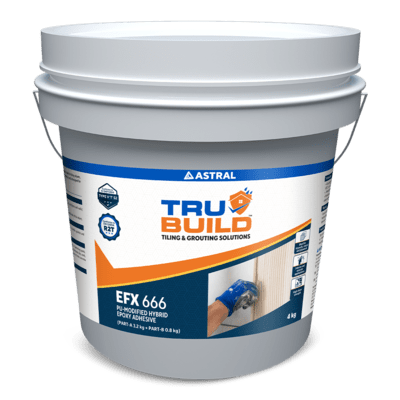
 Water Tanks and Other Areas
Water Tanks and Other Areas